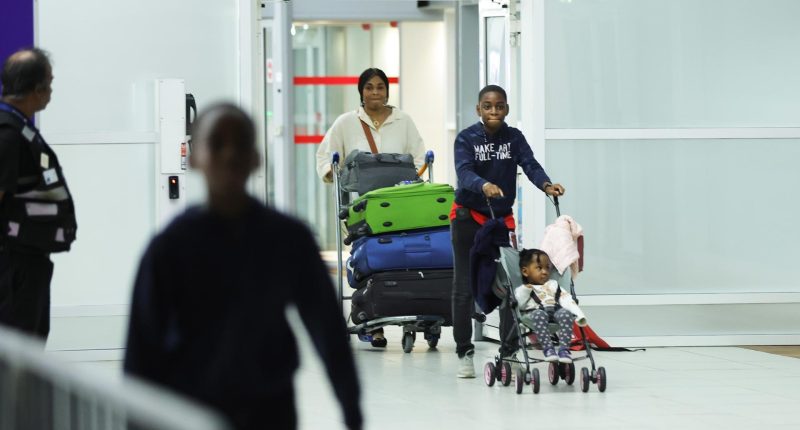France has begun the evacuation of hundreds of French and European citizens from Niger, days after President Mohamed Bazoum was overthrown by members of his presidential guard.
The first of three flights to evacuate French and European citizens from Niger lifted off Tuesday evening.
“There are 262 people on board the plane, an Airbus A330, including a dozen babies,” French Foreign Minister Catherine Colonna told AFP news agency.
“Nearly all the passengers are compatriots” along with “some European nationals”.
Colonna said the flight would land at Paris Roissy Charles de Gaulle airport during the night.
France, Italy and Spain had all announced evacuations from Niger for their citizens and other European nationals.
France’s Foreign Ministry cited recent violence that targeted its embassy in Niamey, the capital, as one of the reasons for its decision to offer evacuation flights to several hundred of its citizens and other Europeans. It said the closure of Niger’s airspace “leaves our compatriots unable to leave the country by their own means”.
Spain’s Defence Ministry announced preparations to evacuate more than 70 nationals, and Italy also said it was arranging a flight.
Germany’s foreign office said its citizens in Niger should “take the next available opportunity to leave” if their stay in the country is not necessary. In an earlier statement, it said that the French had “offered, within the limits of available capacity, to take German nationals on board their flights from Niger”.
Italian foreign minister Antonio Tajani said there would be a “special flight to Italy”.
In Niamey hotels, Europeans and other nationalities, including some Americans, packed bags. At the airport, hundreds of people lined up for hours waiting to leave on French evacuation flights. Parents sat on the floor with their toddlers, others talked on the phone and some stood silent.
The initiative marks the first time that France has staged a large-scale evacuation in its former colonies in the Sahel.
The number of European nationals in Niger remains unclear but there are around 70 Spaniards in the country and at least 600 French nationals, according to reports.
Meanwhile, Germany’s foreign ministry said on Monday that it presumes fewer than 100 German citizens are currently in Niger, excluding those who are in the country as part of a Bundeswehr military mission.
In Washington, the White House said the United States was not joining European allies in evacuating citizens for now, citing a lack of immediate danger.
Washington is “certainly aware of efforts by France and other European nations to evacuate their citizens. At the same time, we don’t have any indications of direct threats to US citizens or to our facilities, so we have not changed our posture with respect to our presence in Niger at this time,” National Security Council spokesman John Kirby said.
About 1,000 US troops are stationed in the land-locked African nation.
Kirby said the White House still sees a “window” for diplomacy to resolve the Niger crisis but added that “we’re monitoring it literally by the hour.”
“We do continue to urge American citizens that are in Niger to make sure safety is their first priority,” he said.
A changing landscape
The July 26 removal of Bazoum – the seventh military takeover in less than three years in West and Central Africa – has sent shockwaves across the region.
While the Economic Community of West African States (ECOWAS) has imposed sanctions on Niger and threatened the possible use of force if Bazoum is not reinstated within a week, the military governments of Burkina Faso and Mali have said any external military aggression in Niger would be considered an act of war against them.
On Sunday, supporters of the coup burned French flags and attacked the French embassy in Niger’s capital, Niamey. Afterward, French President Emmanuel Macron said any attacks on French interests in Niger would be met with a “swift and uncompromising response”.
French nuclear fuels company Orano said its activities were continuing in Niger and would not be affected by the evacuations, as 99 percent of staff were Nigerien nationals.
France has had troops in the region for a decade helping to fight armed groups, but some locals say they want the former colonial ruler to stop intervening in their affairs.
Landlocked Niger has had a turbulent political history since gaining independence in 1960. Before Wednesday, there had been four coups and numerous other attempts, including two previously against Bazoum.
Source:aljazeera.com





